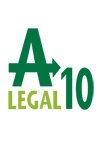Best Foreclosure Lawyers in Bree
Share your needs with us, get contacted by law firms.
Free. Takes 2 min.
Free Guide to Hiring a Real Estate Lawyer
List of the best lawyers in Bree, Belgium
About Foreclosure Law in Bree, Belgium
Foreclosure in Bree falls under Belgian national law and the Flemish regional context, and it concerns the legal process by which a creditor enforces a claim against real property or other assets to recover unpaid debts. In Belgium, enforcement actions are typically carried out by a court-appointed judicial officer - known in Dutch as a gerechtsdeurwaarder - after a creditor has obtained a court judgment or other enforceable title. For mortgages and secured loans, the creditor can seek execution against the mortgaged property, which may result in a public sale of the property to repay outstanding debt. The process involves formal notices, possible court steps, costs for enforcement, and rights for the debtor to contest or seek remedies.
Why You May Need a Lawyer
You may need a lawyer if you face any stage of enforcement or potential foreclosure. Common situations include:
- You received a formal summons, writ of execution, or notice from a bailiff and need to understand your options and deadlines.
- A lender seeks judicial sale of your property or requests eviction of occupants.
- You believe the enforcement is wrongful - for example because of procedural errors, incorrect debt amounts, or mistaken identity.
- You want to negotiate a repayment plan, loan modification, or debt restructuring but need legal support to reach a binding agreement.
- You are considering or have been directed toward collective debt settlement, bankruptcy, or other insolvency procedures and need advice on consequences and eligibility.
- You need to protect family rights or assess whether family law aspects affect enforcement - for example when the property is a primary residence or jointly owned.
Local Laws Overview
Key legal features relevant to foreclosure in Bree include the national legal framework for civil enforcement, the role of the judicial officer, and registers for real-estate security interests:
- Enforcement procedure: A creditor normally must obtain an enforceable title - typically a court judgment or a notarial execution clause - before a bailiff can carry out seizure and sale of assets. The procedures are governed by the Code of Civil Procedure and related legislation.
- Role of the bailiff: The gerechtsdeurwaarder executes the enforcement - serving notices, seizing movable goods, placing liens, initiating forced sale of immovable property, and organizing public auctions. The bailiff is independent and executes court orders.
- Mortgage and registration: Mortgages and other real-right securities are registered in the mortgage registry. Priority between creditors often follows registration order and legal ranking rules.
- Public sale: If a property is sold under enforcement, it is commonly done by public auction. There are formal rules about advertising, minimum terms, and how proceeds are allocated among creditors and for enforcement costs.
- Debtor protections: Debtors have procedural rights - for example to be informed, to contest enforcement before the competent court, and sometimes to request suspensions or propose repayment arrangements. Vulnerable individuals can request assistance from social services or debt advice bodies.
- Regional and social measures: Flanders and local authorities may offer social housing, debt mediation, or support through the OCMW - Openbaar Centrum voor Maatschappelijk Welzijn - which can affect practical outcomes and emergency assistance.
Frequently Asked Questions
What exactly is foreclosure in Belgium and how does it start?
Foreclosure, in Belgian terms, is the enforced recovery of a debt through seizure and sale of assets, including real estate. It generally starts when a creditor has an enforceable title - for example a judgment or a notarial executory clause - and instructs a bailiff to take enforcement measures. The bailiff serves formal notices and may seize movable property first, and in the case of mortgages, proceed to forced sale of the immovable property.
Who will notify me if my property is at risk?
The first formal notifications usually come from the bailiff. Prior to enforcement, the creditor or the lender often sends reminders and default notices. Once enforcement is launched, the bailiff will deliver official notices and documents setting out the nature of the claim, deadlines, and any forthcoming enforcement actions.
Can I stop a foreclosure once the process has begun?
Yes, in many cases you can stop or delay enforcement by paying the debt in full, reaching an agreement with the creditor, or convincing the court that the enforcement is unjustified. There are strict deadlines for raising objections, so prompt action is essential. You should contact a lawyer or the bailiff immediately to understand the available remedies and timelines.
What if I cannot pay the debt - are there alternatives to losing my home?
Alternatives may include negotiating a repayment plan with the creditor, selling the property voluntarily to pay debts, applying for collective debt settlement, or seeking mediation. Social services and debt advice centers can also help negotiate practical solutions. Legal advice will help determine which options are realistic and how to present them to the creditor or court.
What costs are involved in foreclosure?
Costs include the outstanding debt, accrued interest, court and enforcement fees, bailiff fees, and costs of the public sale. If the sale proceeds do not cover all costs and claims, remaining debts may still be owed. Exact costs depend on the case and statutory fee tables; ask a lawyer or bailiff for an estimate.
Do I have any rights if the property is my primary residence?
Debtors occupying a property as a primary residence have certain procedural protections and can seek assistance from social services. Nonetheless, primary residence status does not automatically prevent enforcement if the creditor has a valid enforceable title. Courts may consider hardship and family circumstances, but outcomes are case-specific.
Can I challenge the creditor's claim or the enforcement procedure?
Yes, you can contest the validity or amount of the claim, contest procedural errors in the enforcement, and raise defenses before the competent court. Common grounds include incorrect calculations, lack of proper service, or invalid title. Time limits apply, so seek legal help quickly.
Who runs the sale of a foreclosed property and how is the price set?
The bailiff typically organizes the forced public sale and sets the terms in accordance with legal requirements. The market determines the final sale price through the auction process. There may be minimum conditions or appraisal steps before the sale. Proceeds are used to pay the creditor and cover enforcement costs, with any remainder returned to the debtor.
What happens after the sale - can I be evicted immediately?
After a forced sale, the new owner or creditor can request eviction of occupants. Eviction requires a court order and must be executed by the bailiff. Eviction timelines can vary and may allow short transitional periods, but you should arrange alternative housing and seek social assistance early if eviction is possible.
How do I find legal help in Bree - can I get legal aid?
To find a lawyer, contact the local Bar Association or ask the court office for referral lists. Legal aid - often called rechtsbijstand or pro-deo assistance - may be available if you meet income and asset criteria. The OCMW in Bree can also provide guidance and help you connect with debt mediation services and pro-deo legal counsel. Always verify eligibility and apply as soon as possible.
Additional Resources
Local OCMW - Openbaar Centrum voor Maatschappelijk Welzijn Bree - can advise on social support, emergency housing, and debt mediation.
Local Gerechtsdeurwaarder - the bailiff who handles notifications and enforcement actions in the Bree area - contact details can be obtained from the court registry.
Rechtbank van Eerste Aanleg in Limburg - the local court handling many civil enforcement matters and where you can find information about filings and procedural steps.
Commission for Collective Debt Settlement - information and procedures for individuals seeking judicial debt restructuring or collective settlement.
Order of Lawyers for the Hasselt arrondissement - for lists of local lawyers and information on legal aid and pro-deo representation.
Flemish and federal justice information services - general guidance on civil enforcement, insolvency procedures, and consumer protections.
Next Steps
If you are facing possible foreclosure in Bree, consider the following practical steps:
- Gather documents: loan agreements, mortgage deed, payment records, all correspondence from the lender and bailiff, court papers, identity documents, proof of income, and living expenses.
- Contact a lawyer promptly for a first consultation to assess deadlines, possible defenses, negotiation strategies, and eligibility for legal aid.
- If already contacted by a bailiff, communicate with them to confirm deadlines and what is required to halt enforcement; do not ignore official notifications.
- Explore immediate alternatives: negotiate with the creditor, seek a payment plan, consider voluntary sale, or apply for collective debt settlement if appropriate.
- Reach out to the OCMW in Bree or a local debt counseling service for social support and practical assistance with housing and finances.
- Keep a clear record of all communications and receipts, attend any required hearings, and act quickly when deadlines are short.
Foreclosure procedures can be complex and time-sensitive. Early legal advice and rapid contact with local support services improve your options and chances of a workable solution.
Lawzana helps you find the best lawyers and law firms in Bree through a curated and pre-screened list of qualified legal professionals. Our platform offers rankings and detailed profiles of attorneys and law firms, allowing you to compare based on practice areas, including Foreclosure, experience, and client feedback.
Each profile includes a description of the firm's areas of practice, client reviews, team members and partners, year of establishment, spoken languages, office locations, contact information, social media presence, and any published articles or resources. Most firms on our platform speak English and are experienced in both local and international legal matters.
Get a quote from top-rated law firms in Bree, Belgium — quickly, securely, and without unnecessary hassle.
Disclaimer:
The information provided on this page is for general informational purposes only and does not constitute legal advice. While we strive to ensure the accuracy and relevance of the content, legal information may change over time, and interpretations of the law can vary. You should always consult with a qualified legal professional for advice specific to your situation.
We disclaim all liability for actions taken or not taken based on the content of this page. If you believe any information is incorrect or outdated, please contact us, and we will review and update it where appropriate.










